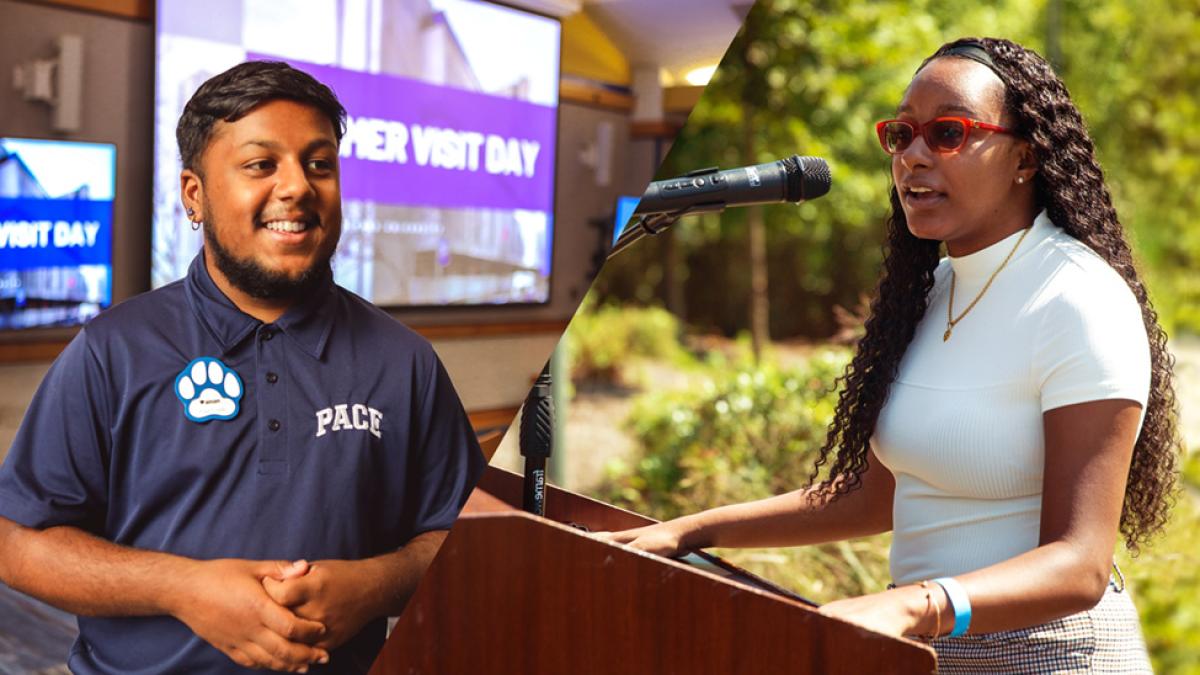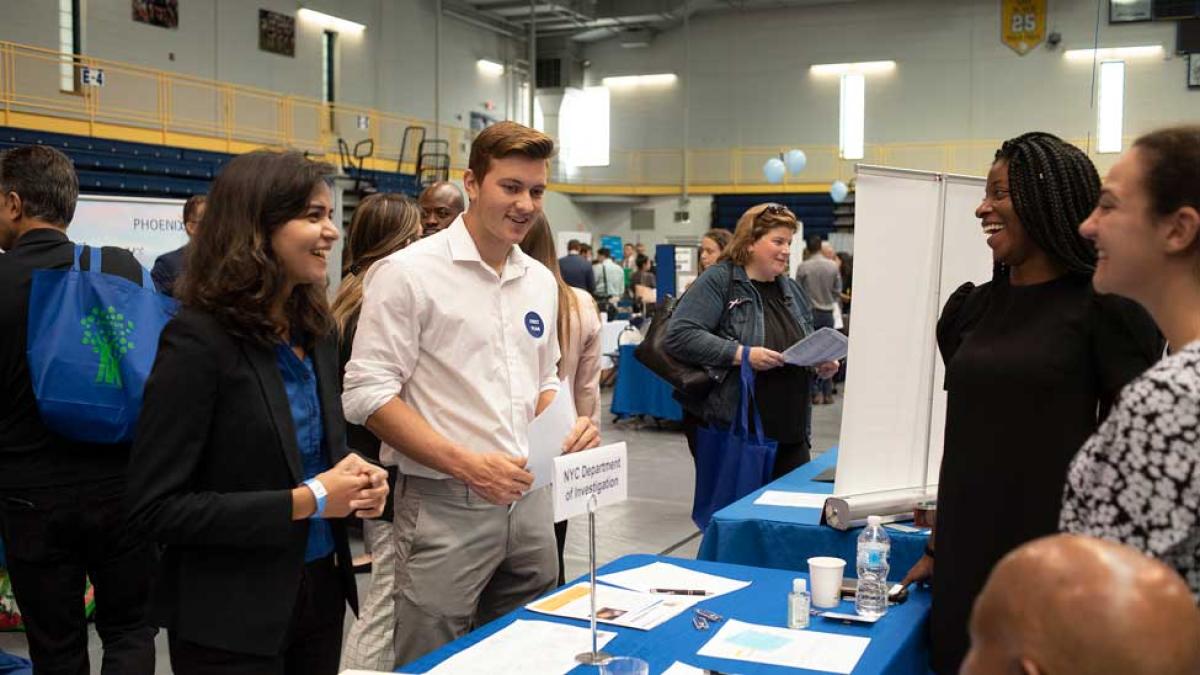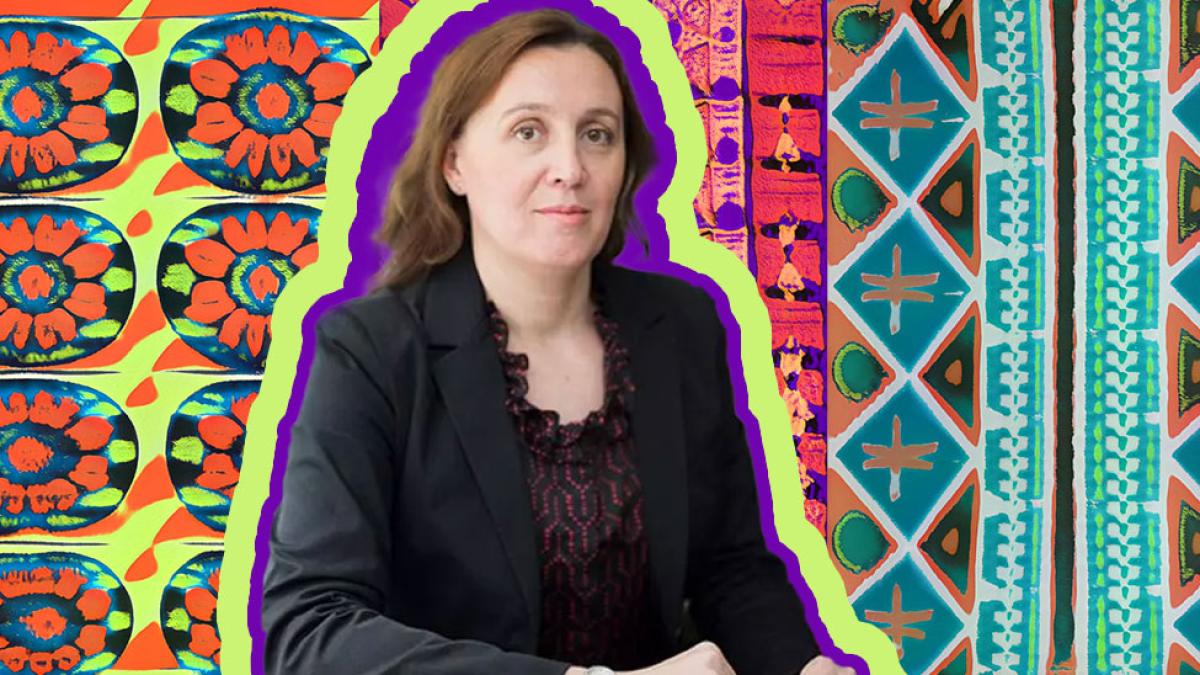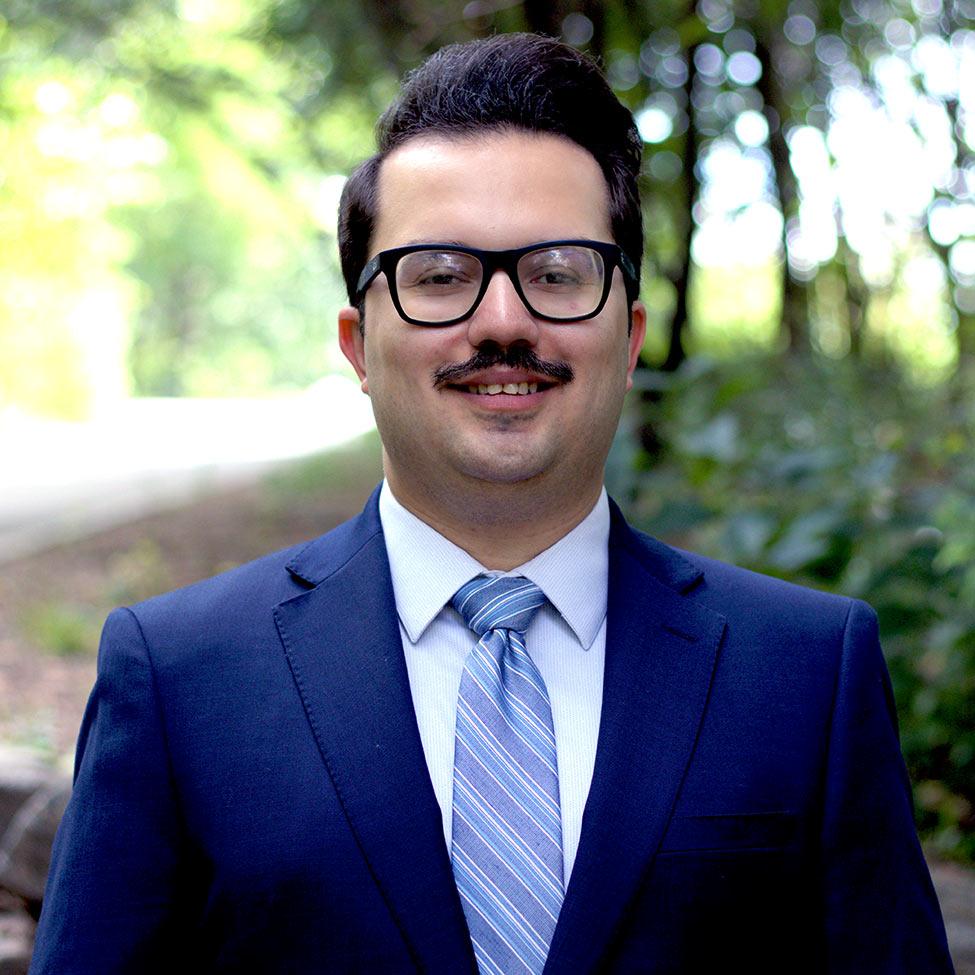
A Force in Forensics: Q+A with Joe Treviño ‘15
Hispanic American and first-generation student Joe Treviño looks into the future to advance data and science in law enforcement as part of the prestigious LEADS scholar program.
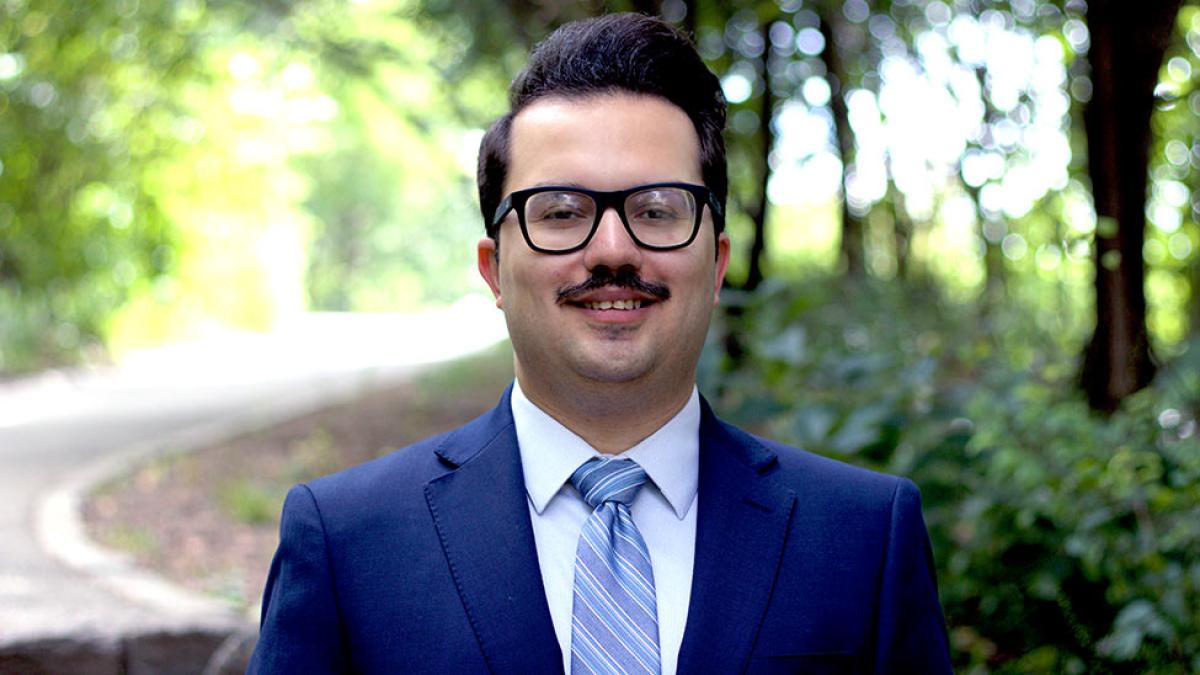

Joe Treviño
Class of 2015
Master of Science in Forensic Science
Joe Treviño is a criminalist with the New York City Police Department with a decade of experience in forensic intelligence, crime scene and medicolegal death investigation, and working in a law enforcement environment, in addition to pursuing a doctorate in forensic science at Oklahoma State University.
This past July, Treviño was selected from a competitive group of applicants as a 2023 National Institute of Justice (NIJ) Law Enforcement Advancing Data and Science (LEADS) Scholar, through which he will conduct research and apply evidence-based practices to criminal justice.
How is this meaningful to you and what do you hope to achieve as part of this program?
This program represents the culmination of my skills and experiences as well as a look into the future. My selection is the type of milestone I always thought people with more experience than I received, but someone saw the spark and potential in me. I am extremely excited to meet like-minded individuals and researchers with whom I can exchange ideas, form friendships, and collaborate.
How did you become interested in your work and get started in your career?
As a child, I would marathon-watch the early true crime shows with my mom (I was hooked on Forensic Files) and wanted to be a forensic chemist, so I went on to pursue a bachelor’s in forensic chemistry at Sam Houston State University in my home state of Texas. Upon graduation, I didn’t feel that I was ready to enter the job market, so I enrolled in the Master of Science in Forensic Science at Pace, returning home for my required internship as a death investigations intern at the Bexar County Medical Examiner’s Office in San Antonio. After receiving my master’s degree, I applied to laboratory and field investigations jobs, and started my career at the Garland Police Department, also in Texas, as a forensic investigator.
I was very much drawn to the flexibility of the Master of Science in Forensic Science program at Pace. The networking and career opportunities in the New York City area were also an attraction, and I felt that being in this location would be a contributing factor to my success.
What attracted you to pursue the master’s degree at Pace?
At the time, forensic science programs were going through a bit of a transformation and the big question was whether you chose a program that had specializations and tracks or one that was more customizable. I was very much drawn to the flexibility of the program at Pace. The networking and career opportunities in the New York City area were also an attraction, and I felt that being in this location would be a contributing factor to my success.
How were Dyson faculty or other members of the Pace community instrumental in your personal and/or professional journey?
Professor Peter Pizzola, PhD, was instrumental in establishing our sense of purpose and service to the public, which is hard to teach and easy to overlook, so I appreciate being guided through that process through his lectures and experiences. Professor Zhaohua Dai, PhD, the director of the forensic science program, was also an important mentor to me; he maintained contact after I graduated and invited me back as a guest lecturer, which began my path in academia and as an adjunct faculty in the program. I am tremendously grateful to both of them.
What challenges have you faced that you overcame and are proud of, and can share?
One of the first barriers I faced was financial. As a first-generation, Hispanic American student, my hope for an education was in scholarships and grants. Thanks to my mom’s unwavering support and relentless stewardship while I was in school, I received a full academic scholarship to any college of my choosing through the Gates Millennium Scholarship. College was an uneasy battle, with the hopes and dreams of my family and the burden of not being allowed to fail. I had stumbles, as any student would, but I recovered quickly.
What advice would you give to our students, as they navigate their college life?
Society already puts so much pressure on you to figure out your life. Don’t increase it by being hard on yourself. You are allowed to have no answers by the time you finish school. You are allowed to figure it out later. You are allowed to fail. You are allowed to struggle. You are allowed to be you. If you are concerned with not knowing something well enough or need help with a subject, reach out to your professors or advisors.
Meet the SGA Presidents of 2023–2024
Get to know the new presidents of the Student Government Associations on campus, Aman Islam ’24 and Nicholas Diaz ’26, as they introduce themselves and outline their hopes for the upcoming year.

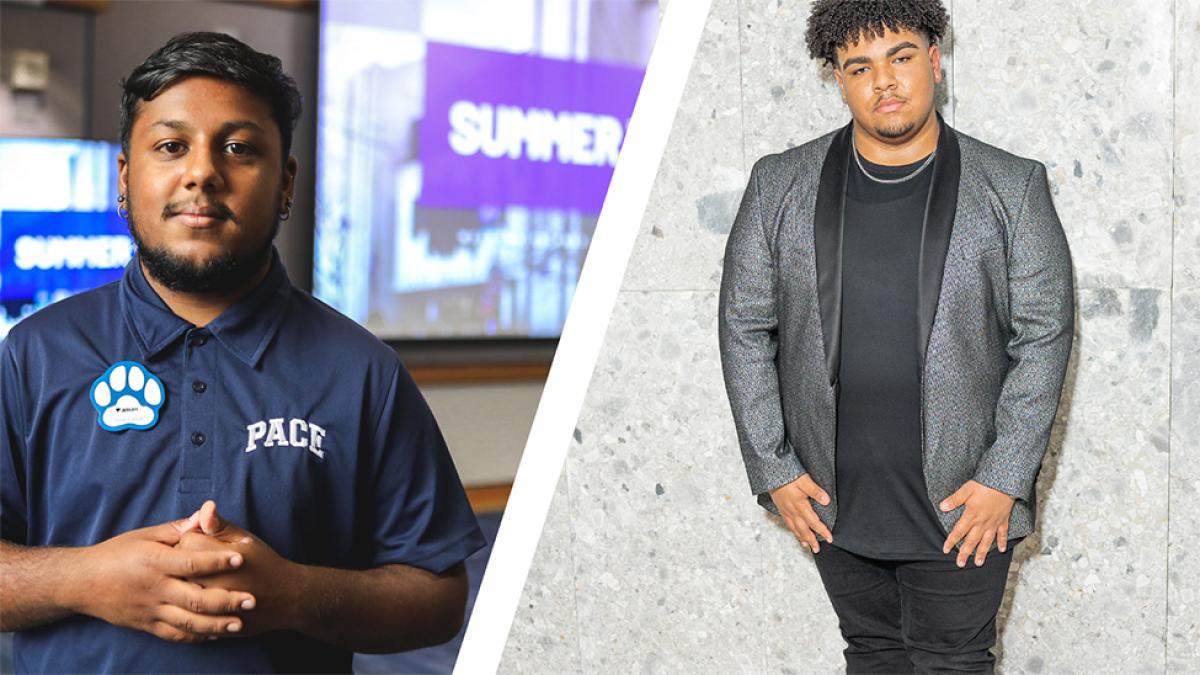
Another year means a new executive board for our New York City and Pleasantville Student Government Associations. Incumbent president for the NYC Campus Aman Islam ’24, is joined by his Pleasantville Campus counterpart Nicholas Diaz ’26 in sharing their hopes, dreams, and goals for the coming school year.
First things first, what’s your major?
Aman: Political Science.
Nicholas: Digital Journalism.
How did you get involved in student government?
Aman: The Student Government Association was the first organization I joined on campus when I entered the Pace Community in Fall 2020 during the height of COVID. SGA to me was a great organization to join, mainly because I was heavily involved in Student Government in high school. I simply joined the first Zoom meeting, and the rest was history!
Nicholas: Throughout my entire four years in high school, I was heavily involved in student government and I knew that I wanted to continue that in college. Coming into Pace, a predominantly white institution, I knew that I wanted to positively impact all the communities I represent, and there was no better way than SGA. I submitted my application with my fingers crossed and now the rest is history.
How can the Pace Community interact with SGA and get more involved?
Aman: I think it is imperative for all students to get involved with the SGA because we are here to represent them! When we get feedback from the student body, we can then rely on that information to get an issue resolved. This is extremely important as our campus is currently experiencing a major expansion and construction is set to begin. We are here to ensure administrators have a sense on how the student body is feeling and what they can do to help. Also, SGA is here to support other student organizations. We want to collaborate with every organization!
Nicholas: One of the biggest things we want to make clear and known to the Pace Community is our open door policy. If you see any of us in our office, please don’t hesitate to come in and say hello! We want to curate a space where students feel comfortable enough to express their thoughts, concerns, and feelings. We also are implementing a suggestion box that is located right outside of the office, so if you aren’t comfortable enough to express yourself person to person, you can also drop it in the box which is monitored weekly! Our Instagram is also updated regularly with current information so If you haven’t already, follow us!
What plans does SGA have for the year? Any projects/initiatives high on your radar?
Aman: This year we want to focus our attention on organization collaboration! We want to put on major programming events, ensure the transition to 15 Beekman is smooth, and make sure our 2024 seniors have the best experience possible considering the lack of senior year excitement in high school due to COVID!
Nicholas: SGA has a lot of plans that we are excited to make a reality for the year. We are super excited to implement a pep rally to show support for our Athletes and Spirit Squads! We also plan to host a fashion show to celebrate our creatives and artists on campus. We also have career and interest oriented opportunities planned for students. The biggest thing we have planned is to bring back our spring concert and hopefully bring another musical artist to campus!
What are you most excited for?
Aman: Our Fall Carnival which is scheduled for September 8th! We’ll have carnival-style games, food, face painting, music and more! Check our Instagram to stay up to date or to volunteer.
Nicholas: I am so excited to see all the things SGA accomplish this year! I have such a good team who are ready to get things done and are all super eager to get to work and do wonderful things for our Pace Community so I know the sky’s the limit on everything we will do! I truly feel that I was put on this earth to help people so to be able to work closely with the community truly fills my heart!
A fun fact about yourself!
Aman: I just came back from a month-long trip across Europe, and it was the greatest experience of my life thus far.
Nicholas: I love to dance and have been dancing since I was two years old!
To learn more or get in contact with Student Government Association on New York City’s Campus email them at sganycpresident@pace.edu or sganyc@pace.edu and follow the NYC SGA on Instagram.
To learn more or get in contact with Pleasantville’s Student Government Association email them at sgapresident@pace.edu and follow the Pleasantville SGA on Instagram.
More From Pace
Jump into generative AI with Darsh Joshi, AI and machine learning intern and recent winner of the Inclusive Hackathon, sponsored by Digital Page and Capgemini, as he explains how companies are looking to get ahead using accessible artificial intelligence tech.
Aman Islam and Kimberly Mars are the Student Government Association (SGA) presidents for the New York City and Pleasantville campuses, respectively. Get to know them, find out what SGA has been up to, and what plans are yet to come.
Want to host an event during Pace’s fourth annual Social Justice Week? Apply by Tuesday, September 26. Read the article to learn more about the origins of Social Justice Week and how to get involved.
Writing and Cultural Studies Professor Vyshali Manivannan, PhD, Earns Multiple Scholarly Accolades
Clinical Assistant Professor Vyshali Manivannan, PhD, has recently earned several impressive accolades in the areas of writing, cultural studies, and technology.
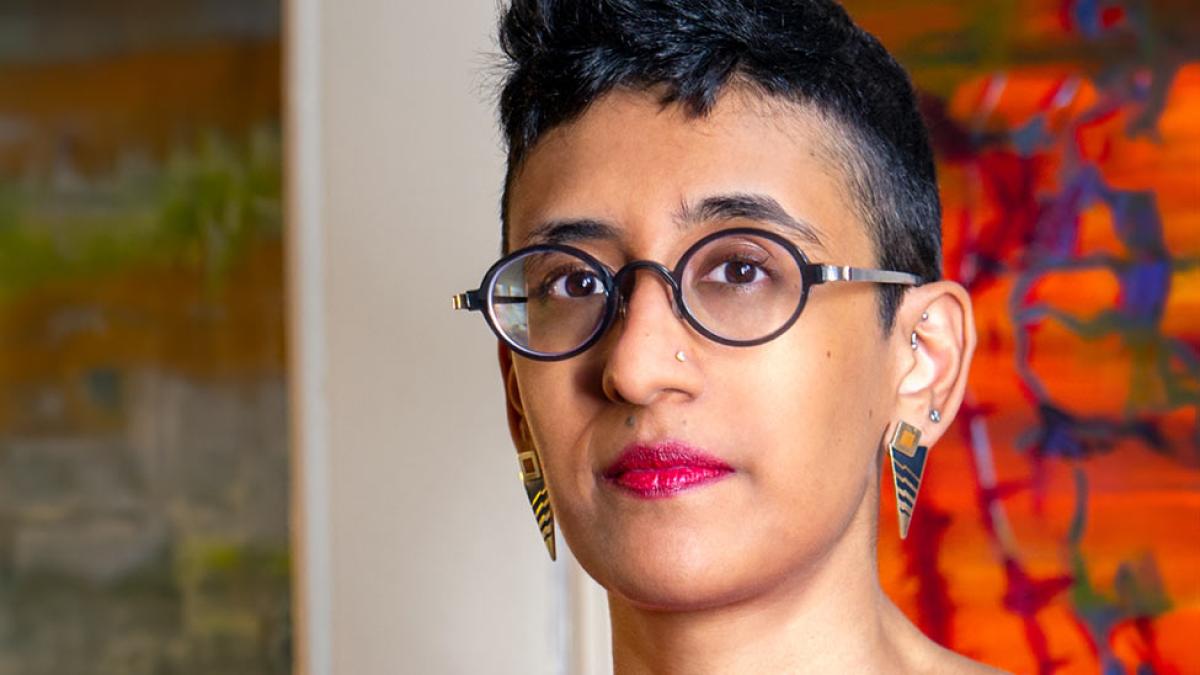
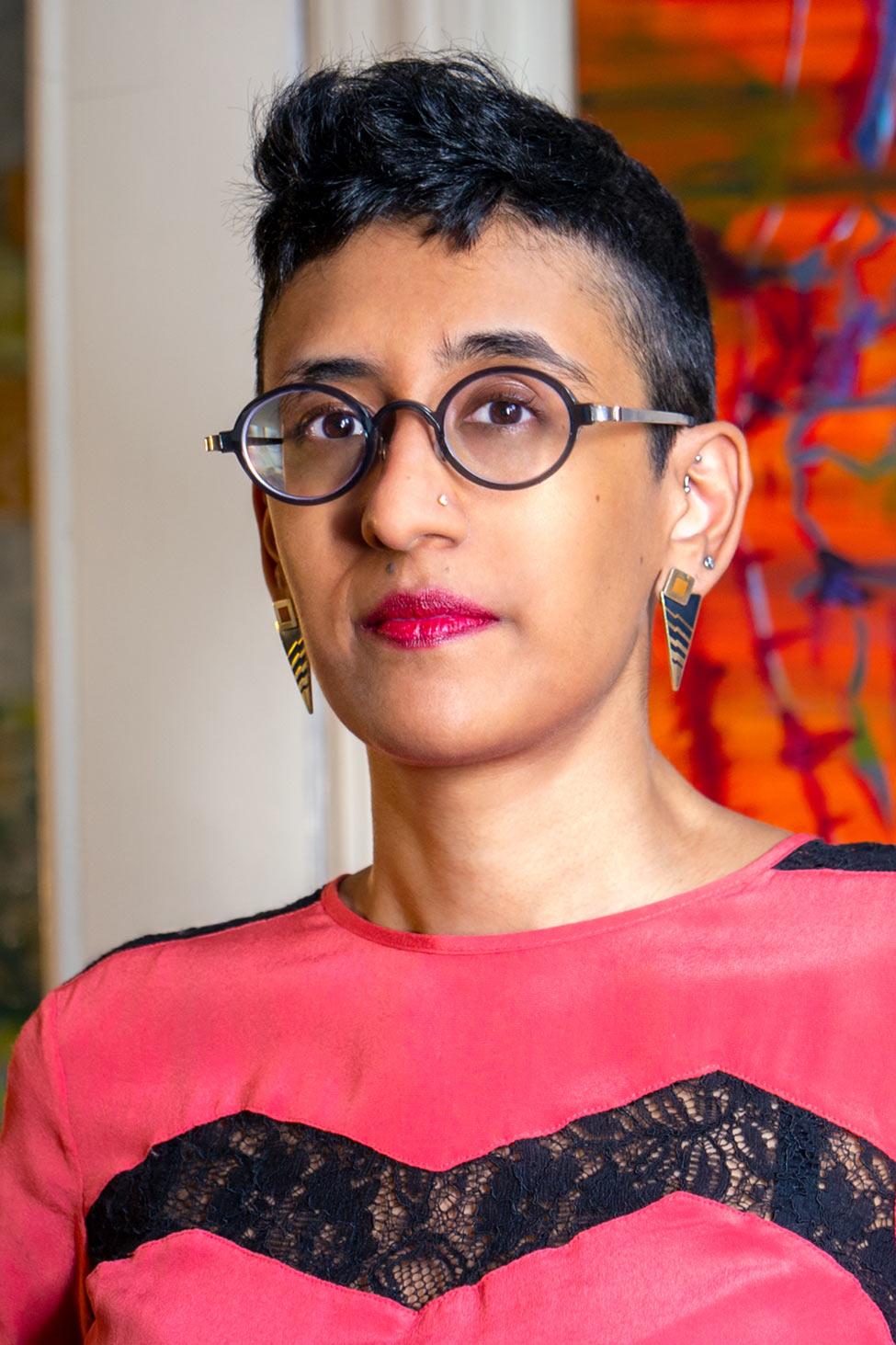
Clinical Assistant Professor of Writing and Cultural Studies Vyshali Manivannan, PhD, has earned several impressive accolades in recent months.
First, Manivannan was recognized with the Distinguished Scholarly Achievement Award, regarded as the School of Graduate Studies at Rutgers’s most prestigious honor, awarded to the student who “demonstrates the highest possible level of academic excellence and achievement” in scholarship and research. Manivannan received the award in May 2023 after graduating with a PhD in communication, information, and media.
This summer, Manivannan received three awards, which were announced at the 2023 Computers and Writing Conference. She was named an honorable mention for the 2023 Kairos Best Webtext Award for "Hollow Me, Hollow Me, Until Only You Remain," published in Spark: A 4C4Equality Journal. The work is a choice-based interactive nonfiction game allowing the user to navigate the experience of a chronically ill queer woman receiving emergency medical care.
Manivannan was also honored with the 2022-2023 Computers and Composition Michelle Kendrick Award for Outstanding Digital Production/Scholarship for her co-edited special issue on "Carework and Writing During COVID," Part I and Part II, published in the Journal of Multimodal Rhetorics.
In addition, Manivannan also received the 2023 Technology Innovator Award, given by the Conference on College Composition and Communication Committee on Computers in Composition and Communication (7Cs), which recognizes long-term, innovative contributions to the computers and writing community that push the field regarding excellence in teaching, scholarship, and service, and call our assumptions into question.
Pace University Names Stephanie Akunvabey as its Chief Diversity Officer
Stephanie Akunvabey, a native New Yorker who has dedicated her career in higher education to championing issues relating to equity and inclusion, has been named Pace University’s new associate vice president for diversity and inclusion and its chief diversity officer.
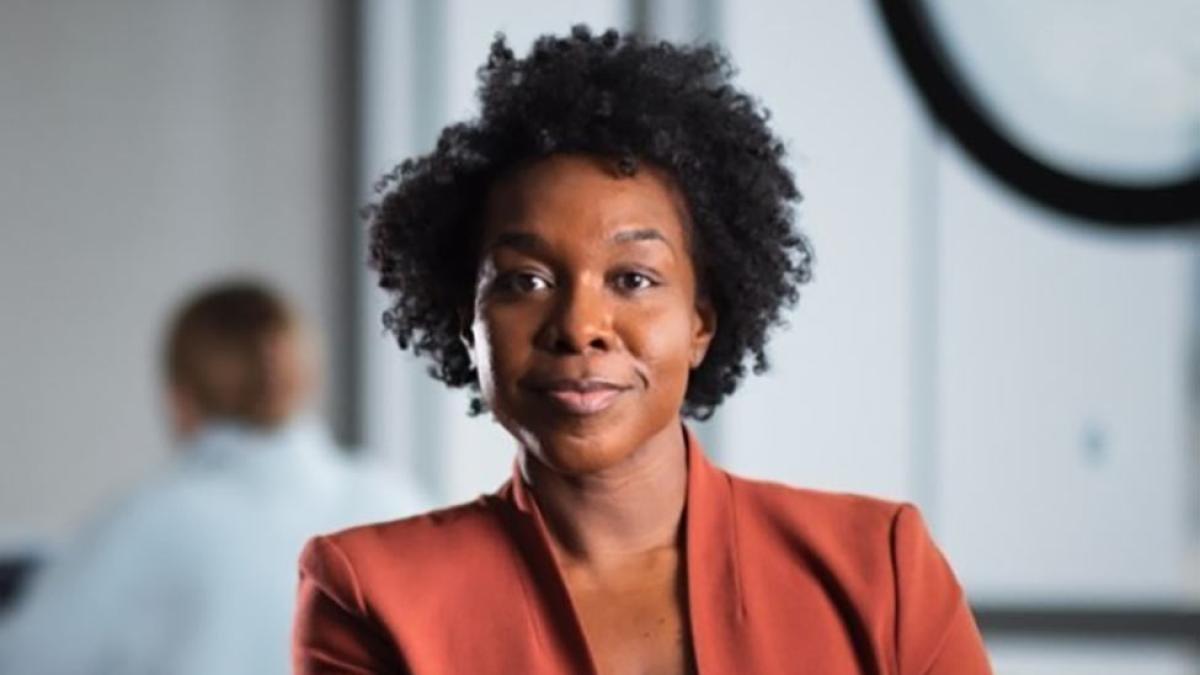
A thought leader committed to creating and sustaining a welcoming and just campus climate for the Pace community
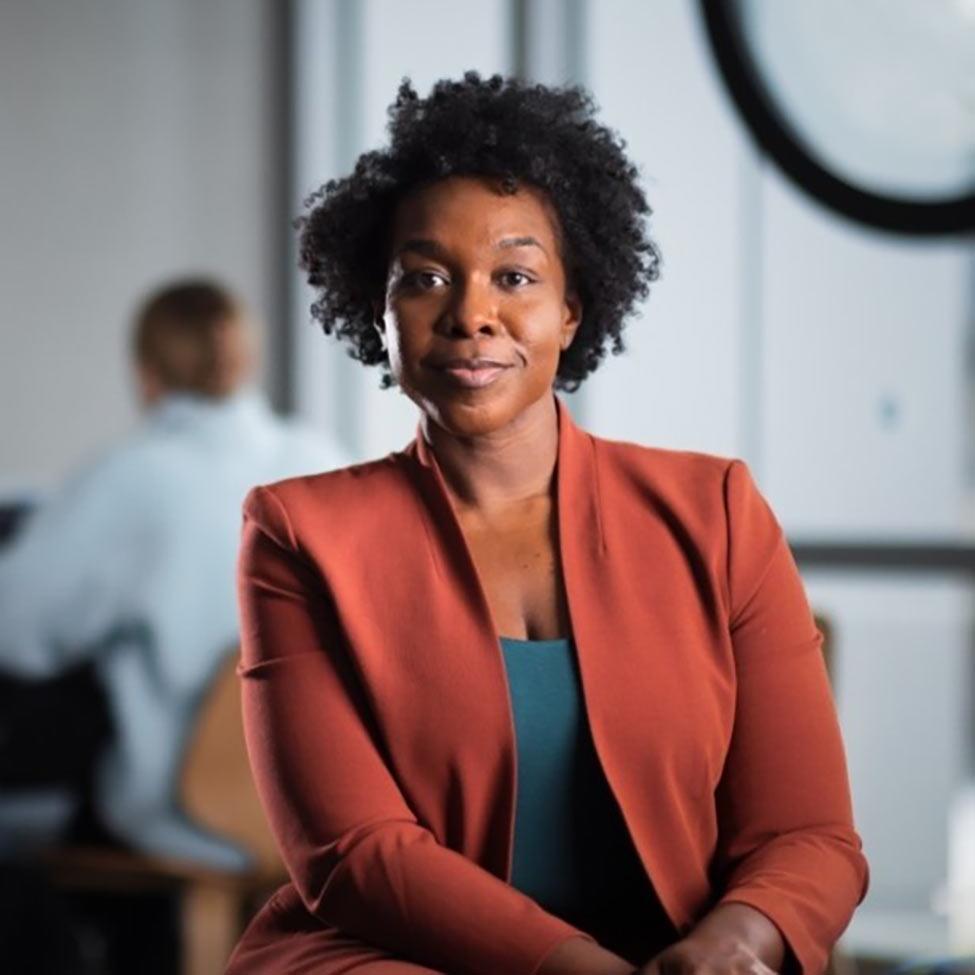
Stephanie Akunvabey, a native New Yorker who has dedicated her career in higher education to championing issues relating to equity and inclusion, has been named Pace University’s new associate vice president for diversity and inclusion and its chief diversity officer.
Akunvabey, Ed.D., joins Pace after holding leadership roles at colleges and universities throughout the region. Most recently, she served in a similar role at Roger Williams University in Rhode Island where she provided strategic leadership and developed policies and practices that support an anti-racist, diverse and equitable community across the university’s campuses in Bristol and Providence.
In making the announcement, Pace President Marvin Krislov praised Akunvabey’s experience in the field and her understanding of the university’s mission of Opportunitas, or creating opportunities for students, particularly those who are the first in their families to attend college.
“Stephanie is a talented leader with deep experience in the DEI space,” said Krislov. “Pace University is committed to providing transformative experiences for our diverse student body, and we’re pleased that we’ll be able to benefit from her insights and expertise. We’re excited to welcome her back to her hometown of New York and into our Pace Community.”
As chief diversity officer, Akunvabey will lead a division that is committed to creating and sustaining a welcoming and just campus climate for all members of Pace University through inclusive policies, practices, and programming for the University and its three campuses -- in New York City, Pleasantville, and the Elisabeth Haub School of Law in White Plains.
As leader of the Division of Diversity, Equity and Inclusion, she oversees the Office of Institutional Equity and Title IX Compliance; Office of Sexual and Interpersonal Wellness; Office of Gender and Sexuality; Office of Multicultural Affairs; and The LGBTQA+ Center. Akunvabey will also provide thought-leadership and oversight at The Barry M. and Jackie Gosin Center for Equity and Inclusion, which in 2021 was established to support ongoing efforts at Pace in anti-racism and equity, expand work to elevate job placement and entrepreneurship among Black, Indigenous, and People of Color (BIPOC) students, and enhance academic scholarship in these areas.
During her tenure in higher education, Akunvabey has held a number of leadership roles. While at Kingsborough Community College in Brooklyn, she served as interim assistant dean of academic affairs where she helped develop the college’s equity plan and classroom equity efforts, enabling Kingsborough to participate in Achieving the Dream and USC Race and Equity Center’s Racial Equity Leadership Academy. Akunvabey also led campus dialogues and workshops to address social justice, civic engagement, and equity issues.
Akunvabey has an Ed.D. in Higher and Postsecondary Education, an M.A. in Higher Education and Student Personnel Administration from New York University, and a B.A. in Sociology/Anthropology and Africana Studies from Agnes Scott College in Decatur, Georgia. She has conducted research on college access for Black and Latino youth in America, on access and inclusion issues in higher education in India and Israel, and on educational equity for young girls in South Africa.
“I’m excited to return home to New York and to join Pace University in its mission of preparing students to be tomorrow's leaders and changemakers,” said Akunvabey. “I’m also eager to build on the strong foundation at an institution that truly exemplifies diversity and is committed to fairness, equity, and inclusion for all of its students.”
About Pace University
Since 1906, Pace University has been transforming the lives of its diverse students—academically, professionally, and socioeconomically. With campuses in New York City and Westchester County, New York, Pace offers bachelor, master, and doctoral degree programs to 13,600 students in its College of Health Professions, Dyson College of Arts and Sciences, Elisabeth Haub School of Law, Lubin School of Business, School of Education, and Seidenberg School of Computer Science and Information Systems.
Pace Students Elevating Tech Through Generative AI
Jump into generative AI with Darsh Joshi, AI and machine learning intern and recent winner of the Inclusive Hackathon, sponsored by Digital Page and Capgemini, as he explains how companies are looking to get ahead using accessible artificial intelligence tech.
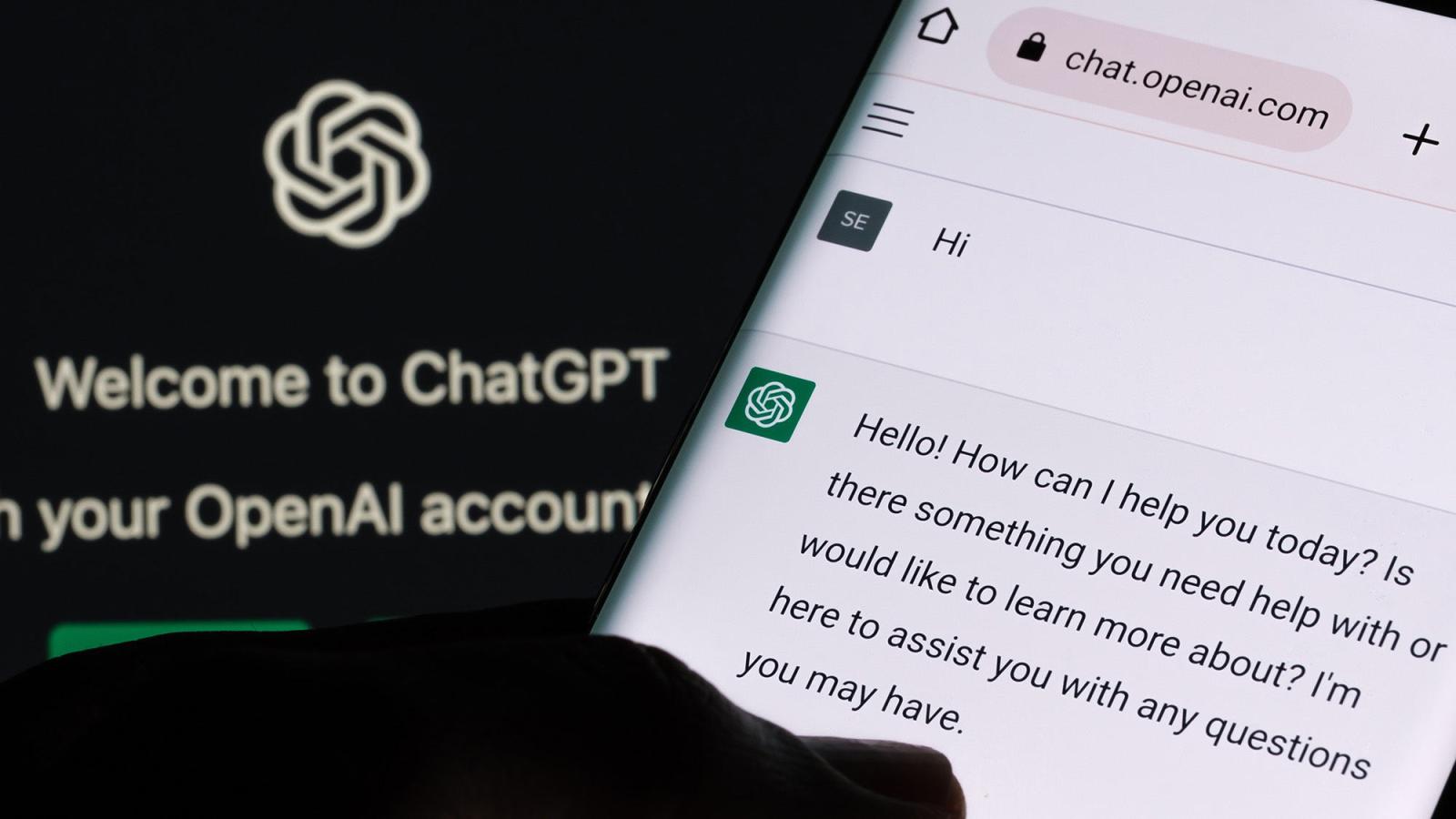
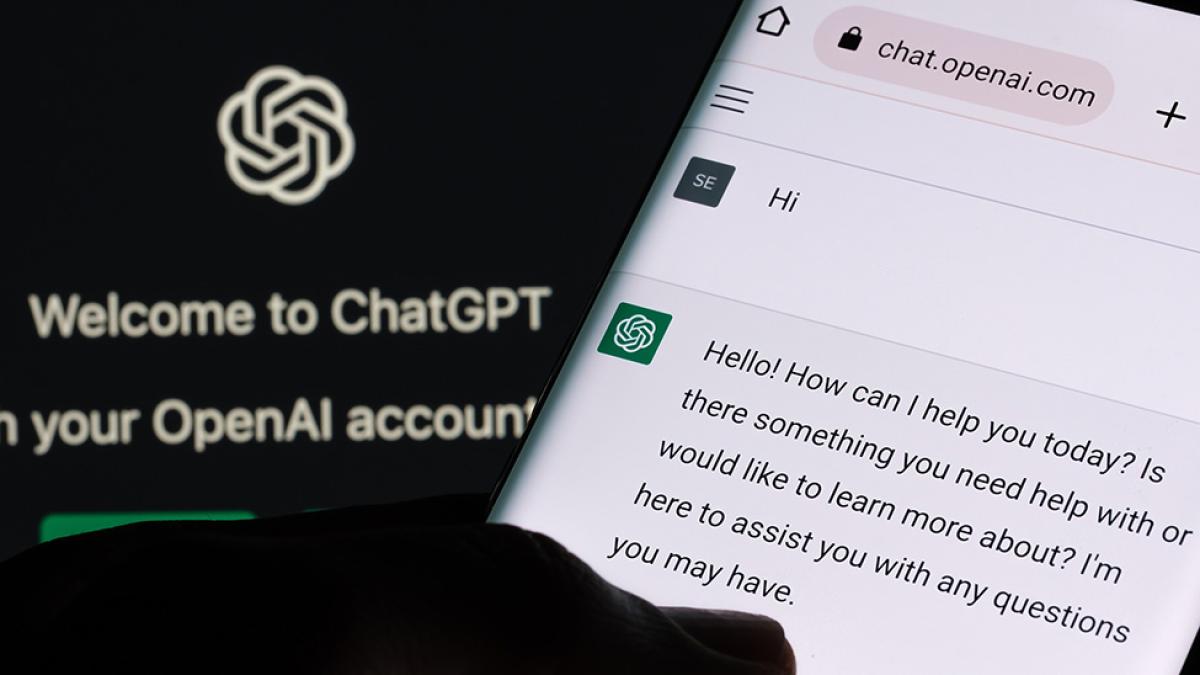
Generative artificial intelligence isn’t new, but it’s certainly having its time to shine. With the release of public models such as Chat-GPT, AI is at the fingertips of anyone with an internet connection. Students in the field are getting to dive deeper and expand what we know of its capabilities. This is happening in the form of research, start-ups, and hackathons, such as the Inclusive Hackathon, sponsored by Digital Page and Capgemini, in which Pace students took home the win.
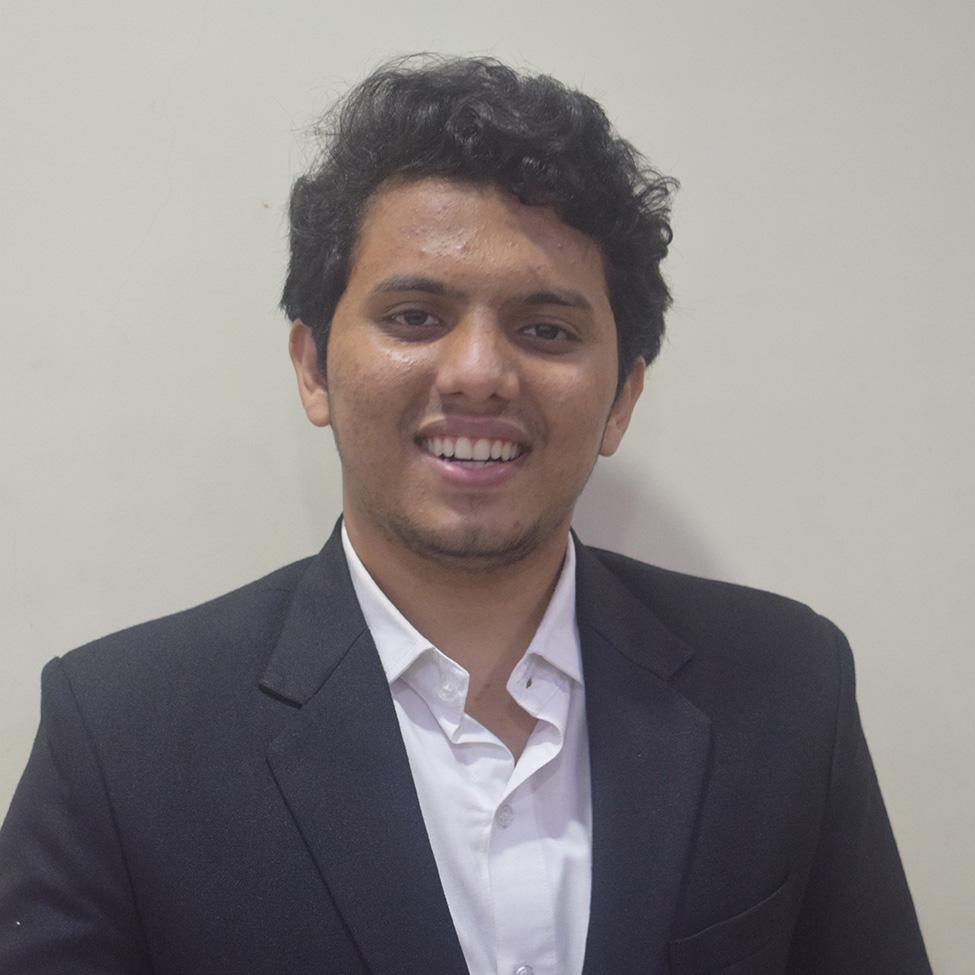
Darsh Joshi ’24 is pursuing his master’s in Data Science and was on the winning team. This hackathon was somewhat out of the norm. Usually, hackathons last a few days, but the more intensive ones may take a week. “But this was an exceptional hackathon,” Darsh says. “It lasted for five long weeks. The extended length's purpose was to learn generative AI from the basics first.”
He explains that companies like Capgemini have noted the boom in generative AI and are seeking to find practical applications for it within their companies to implement solutions to long-standing problems. They want to know how participants’ solution with the use of generative AI can help automate data analysis and record keeping to improve efficiency.
That was what Darsh’s team was tasked with figuring out.
Their team was first given the option to either tackle an generative AI problem or an ESG problem, a movement focused on the intersection of good business with positive environmental impact. They chose to tackle generative AI.
For those of us in the crowd who don’t understand the ins and outs of AI, Darsh breaks it down into what this means practically for a company. “In finance, there’s lots of data. Companies use this data to generate reports, process the data, and come up with an outcome,” he says. “They wanted us to create something where the company’s internal employees can directly upload a document into that website or web application and get any insights, they want just by querying the document like casual users do when they use Chat-GPT.”
This kind of functionality has obvious benefits for any company, reducing time spent analyzing data and (hopefully) reducing human error. Darsh further explains the importance of why these companies are looking for internal solutions, rather than utilizing open-source AI tools: privacy. This understanding is a large part of why Darsh’s team stood out to the judges and ultimately won.
If I want any resources Pace University, has it. If I want to upskill myself, Pace has it.
“We introduced a security feature which could encrypt important information that is only stored within the company, and then decrypt that information when it comes back with a response,” Darsh says. “We introduced this data security and governance feature into our solution, and it led us to our victory.”
Their team, consisting of Pace students Dhruv Patel ’24, Malav Shah ’24, and Rutik Kothwala ’24, divided the work, conceptualized their idea, fine-tuned their model, and provided a solution that impressed the judges and helped expand their knowledge on working with these new models of generative AI.
Post-hackathon wins, Darsh is still steeped in AI work. He’s currently an AI and Machine Learning intern for Advance Dental Care of Vernon, where he’s helping create an internal AI model of cognitive document processing, allowing the staff there to better keep track of customer data and other business-related reporting. He also works for the Computational Intelligence Lab and runs the Data Sciences Club right here at Pace. “We are doing amazing things,” he says. “We’re working on a couple of collaborations. We have a team of people working on events, social media, and web content.”
Students who want to be on the frontier of AI innovation can find those opportunities here at Pace, whether at the Computational Intelligence Lab or learning from faculty exploring the technology. “If I want any resources Pace University, has it,” says Darsh. “If I want to upskill myself, Pace has it.”
Get involved with Pace’s Data Sciences Club and pick up new skills at the Computational Intelligence Lab.
More from Pace
Get to know the new presidents of the Student Government Associations on campus, Aman Islam ’24 and Nicholas Diaz ’26, as they introduce themselves and outline their hopes for the upcoming year.
With Career Fairs coming up on each campus, now's the time make sure you make the most out of this golden opportunity. Read more to learn how to set yourself up for success at a Pace Career Fair.
Meet Christelle Scharff, PhD, a computer science expert focusing on the limitations and biases of AI systems. She and her team are tackling the intersection of AI and African fashion to explore the impact of diverse datasets.
